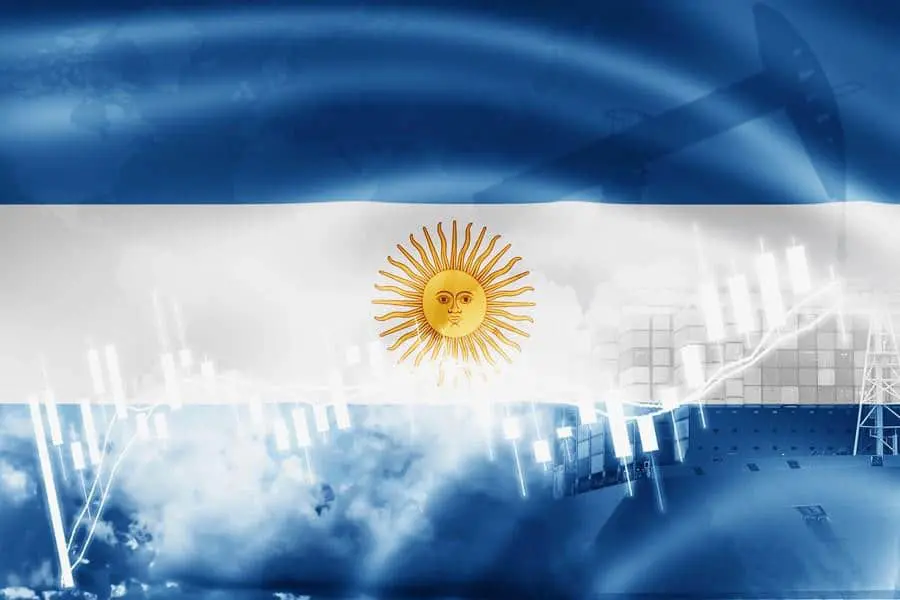Mass distrust in the economy is something that characterizes Argentina today. For Jeronimo Ferrer, this mistrust is shaped by memories of the devastating financial crisis in Argentina in the late 1990s, when bank accounts were frozen and people’s savings evaporated overnight. It’s not just Ferrer who thinks so. A student studying to become an engineer says he keeps all his savings in US dollars at home, fearing that the banking system could collapse again, leading to a devaluation of the money, writes the BBC. While many Argentines have inevitably become economic experts, following things like high inflation and the unofficial exchange rate between the local peso and the US dollar, Jeronimo Ferrer has gone even further. Since 2019, he has run a program called “Our Local Crazy Economy and Bitcoin Tour of Buenos Aires”, where he explains to tourists the level of restrictions that Argentines face in their daily lives – from a limit on foreign exchange transactions to a ban on paying contributions of reservations for international flights. He gives examples of cryptocurrencies, especially bitcoin, and why he believes they are a valuable alternative to the volatile and heavily controlled Argentine peso. “When you have restrictions, you need tools for freedom,” Ferrer said. For many crypto enthusiasts around the world, decentralization and virtual currencies are primarily an ideology and a means of profit. But for many Argentines, it is a means of meeting basic needs. “I trust math and software more than I trust politicians,” Ferrer said, adding that he said bitcoin was something Argentines should embrace without much thought. Various examples of strong government intervention in the economy are helping to strengthen cryptocurrencies in Argentina. For example, bitcoin mining operations are relatively cheap, as the price of electricity in the country is low. Bitcoin mining is a process in which new digital currencies are mined. It involves the use of computers to solve complex mathematical equations. When these calculations are completed, the miner receives reward in the form of bitcoin. It may seem easy in words, but the process requires investment in hardware, the consumption of a significant amount of electricity and the availability of stable cooling systems. The University of Cambridge’s Center for Alternative Finance estimates that the electricity used to dig up bitcoin worldwide reaches 137 terawatt hours a year. This is the same as the annual electricity consumption in countries such as Norway and Poland. The production of so much electricity for the purposes of cryptocurrencies increases the harmful carbon emissions, and so far there are no accurate estimates of how large the harmful footprint of this industry. However, in Argentina, such environmental concerns often give way to financial concerns. For some Argentines, even a relatively young and unpredictable currency is preferable to the extremely volatile peso. Bitcoin, which is the most popular cryptocurrency in the world, can also serve as a buffer against high inflation, as the number of currencies is pre-set – that is, there is no way to “print” an infinite number of bitcoins. Inflation in Argentina seems to be an eternal problem that is present in the daily lives of the people in the country. Annual inflation in Argentina exceeds 50%.
“During the pandemic, people noticed the situation and in order to protect their money, they chose to focus on assets that are limited,” said Maria Mercedes Etchegoen. She is a lawyer specializing in intellectual property, as well as a member of the executive committee of the NGO Bitcoin Argentina. Etchegoen is also part of the creation of the Cryptogirls movement, which emerged amid growing interest in cryptocurrencies during the pandemic. For now, the Argentine government is approaching the boom in virtual currencies in the country with caution. “There are no specific regulations for cryptocurrencies in Argentina,” said Etchegoen. However, the country’s central bank has issued warnings about cryptocurrency fraud. The regulator points out that despite the not very high level of use of cryptocurrencies, their use is growing rapidly – something that deserves attention. IMF to the world’s first bitcoin: Abandon plans The International Monetary Fund is pressuring El Salvador to abandon bitcoin as a legal tender, according to a statement from the organization … Read more Etchegoen is concerned about uneven access to cryptocurrencies in the country. So far, the people who use them are a minority – mostly young people, men, people with interests in technology and part of the wealthier population. “Nowadays, this is not a technology that anyone can adopt,” admits blockchain consultant Lucia Lizardo. However, in Argentina, efforts are being made to spread cryptocurrencies, mainly through financial products that serve as an intermediary between traditional and virtual currencies. Three Argentine startups offer debit cards specifically designed for blockchain-based transactions. Lemon, one of these companies, was founded in a city where 40% of stores accept bitcoin payments.
Some people in Argentina also use so-called stablecoins, which are pegged to the US dollar, making them less volatile. Of course, cryptocurrencies cannot offer a radical solution to the problems of the Argentine economy. They bring with them their own problems such as currency speculation, fraud and harmful carbon footprint. However, “I think it’s like a revolution for young people,” says Lizardo. For Jeronimo Ferrer, things are much clearer. “This is our money and it is the only thing that politicians cannot destroy,” he said.







